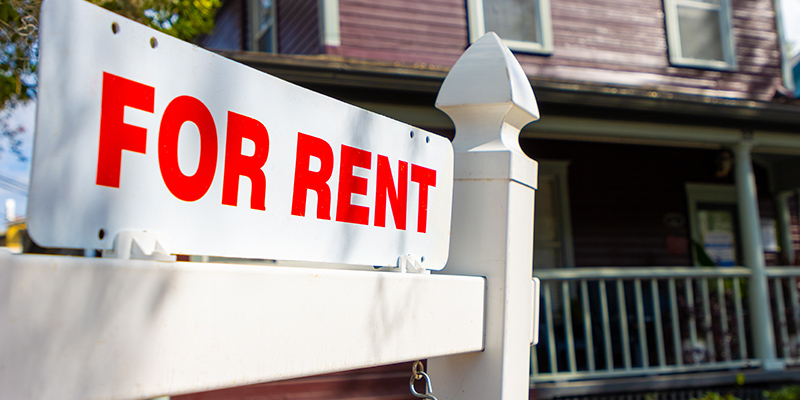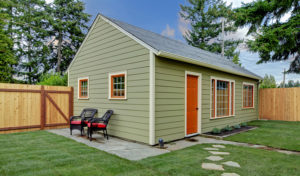HOA Rental Restrictions: What Are These And Can An HOA Restrict Rentals?

Owning a property means having complete control over its appearance and use, including renting it out to someone else. However, that is not always the case for homes in HOA communities, where HOA rental restrictions might apply.
Browse By Category
Sign up for Our Newsletter
Owning a property means having complete control over its appearance and use, including renting it out to someone else. However, that is not always the case for homes in HOA communities, where HOA rental restrictions might apply.
Are HOA Rental Restrictions Legal and Enforceable?
Homeowners associations are known for their strict rules — from architectural controls and parking rules to noise regulations and maintenance responsibilities. Many associations even enforce rental restrictions to limit the number of rentals in the community or outright prohibit them altogether.
But can an HOA restrict rentals in the first place? State laws permitting homeowners associations generally can restrict rentals, and you can usually find such restrictions in the HOA’s governing documents.
To homeowners, rental restrictions seem unfair because they inhibit the unrestricted use of the property. But courts across the United States continue to uphold these restrictions for legitimate purposes or when they support the association’s best interests. For instance, an HOA might want to limit the number of renters in the community because renters are less likely to take care of the property, which can result in lower curb appeal and property values.
Why HOA Rental Restrictions Matter
The primary reason for the imposition of rental restrictions is the protection of property values. Tenants of an HOA rental are likelier to violate the community’s rules because they don’t have a vested interest in the association. Moreover, the consistent turnover of renters, specifically for short-term rentals, can make residents feel uneasy.
Apart from their effect on property values, an association may also want to restrict rentals for other reasons. When an HOA allows rentals, its insurance provider might raise its liability insurance rates. Renters naturally bring more liability to the association, and providers will want to mitigate risk.
Insurance providers aren’t the only ones who will feel hesitant, though. Lending institutions, such as banks, may be reluctant to provide loans to associations with many renters.
Finally, there needs to be more stability in a community with many renters. Most homeowners want to live in a community where they know their neighbors because it offers more security. However, a high turnover rate of residents due to rentals can mess with this balance.
Types of Rental Restrictions in an HOA
There are two main ways an HOA can restrict rentals in the community: by placing a cap on rentals or imposing lease restrictions.
Rental Caps
 What is a rental cap? Put simply, it is the maximum number or percentage of permitted rental homes in the community. For instance, if an HOA has a rental cap of 20%, tenants can only occupy 20% of the houses in the neighborhood at any given time. No other homeowner can rent out their property if this cap is reached.
What is a rental cap? Put simply, it is the maximum number or percentage of permitted rental homes in the community. For instance, if an HOA has a rental cap of 20%, tenants can only occupy 20% of the houses in the neighborhood at any given time. No other homeowner can rent out their property if this cap is reached.
Rental caps usually come on a first-come, first-served basis. Moreover, many associations require owners to reside in their homes for a fixed number of years before receiving permission to rent them out. This discourages institutional investors or business entities that purchase properties with the sole intention of converting them into rentals.
Lease Restrictions
Lease restrictions are restrictions owners/landlords must include in lease agreements if they wish to rent out their HOA homes. Sample HOA rental restrictions involving this usually include requiring a minimum lease period. This minimum period can vary from association to association, though most go with a minimum of 30 days. Imposing such a restriction would effectively limit short-term rentals in the community.
Another common lease restriction is requiring tenants to follow the community’s rules. As such, an owner/landlord can evict the tenant with cause should they violate an HOA rule, which would break the terms of the lease.
HOA Rental Restrictions in Select States
Because of how polarizing rental restrictions can be, select states have taken it upon themselves to regulate them within the context of HOAs. Here are just a few states with statutes concerning HOA rentals.
HOA Rental Restrictions Arizona
Regarding HOA short term rental restrictions in Arizona, it is necessary to check the declaration. According to the Arizona Revised Statutes Section 33-1260.01(a), an HOA may not prohibit unit owners from renting out their property unless expressly prohibited in the declaration. Section 33-1227 states that rental restrictions do not apply to pre-existing owners, and they may only be used by a unanimous vote of approval from the membership.
Moreover, Section 33-1806.01(e)(1) forbids associations from requiring members to submit the tenant’s rental application, lease agreement, credit report, and other personal information.
HOA Rental Restrictions California
 As per California Civil Code Section 4741, a common interest development may not have a provision or an amendment in a governing document that prohibits or unreasonably restricts the rental of any separate interest, accessory dwelling unit, or junior accessory dwelling unit.
As per California Civil Code Section 4741, a common interest development may not have a provision or an amendment in a governing document that prohibits or unreasonably restricts the rental of any separate interest, accessory dwelling unit, or junior accessory dwelling unit.
The exact section also prevents rental caps below 25%, though associations can still prohibit short-term or transient rentals with rental periods of 30 days or less.
A pre-existing property owner must consent if an HOA enacts a rental restriction. Otherwise, the property owner is exempt from the rental restriction. Moreover, Civil Code Section 4525 gives purchasers the right to receive a copy of the rental restrictions before the execution of a sale or transfer of a title.
HOA Rental Restrictions Colorado
The Colorado Supreme Court has held that an association may not have HOA short term rental restrictions in Colorado unless the declaration expressly permits it. An HOA must amend its declaration if it wishes to impose rental restrictions.
HOA Rental Restrictions Florida
Homeowners associations in Florida can generally restrict or prohibit rentals. If an HOA wishes to amend its declaration to include rental restrictions, the amendment shall only apply to owners who acquire the title to the parcel after July 1, 2021, or to owners who consent to the amendment. As for HOA short-term rental restrictions in Florida, state law allows an HOA to amend its documents to prohibit rentals with terms of less than 6 months.
HOA Rental Restrictions Georgia
In Georgia, homeowners associations can generally prohibit or restrict rentals. However, if an HOA wishes to amend its governing documents, Section 44-5-60 of the Georgia Code may apply. This section states that a change in covenants imposing a greater restriction on the use of property is unenforceable unless an owner agrees to it in writing. An argument can be made, though, that this section would not apply to HOAs and condos that submit to the Georgia Property Owners’ Association Act and the Georgia Condominium Act.
HOA Rental Restrictions Indiana
Homeowners associations in Indiana generally have the ability to impose rental restrictions on owners. No special requirements exist as of writing. That said, it is best for HOAs that wish to restrict rentals to include such restrictions in their governing documents to avoid conflict.
HOA Rental Restrictions North Carolina
Homeowners associations in North Carolina generally have the ability to impose rental restrictions on owners. If an HOA wishes to enforce short-term rental restrictions, it is best to be careful about the language used. Courts have generally upheld that covenants that only permit the residential use of properties are not broken by rentals since they do not count as commercial use. As such, restrictions that prohibit or limit rentals should be more specific.
HOA Rental Restrictions Pennsylvania
Homeowners associations in Pennsylvania generally can impose rental restrictions on owners, and no special requirements exist as of writing. That said, it is best for HOAs who wish to restrict rentals to include them in their governing documents to avoid conflict.
HOA Rental Restrictions Texas
Homeowners associations in Texas generally can impose rental restrictions on owners. Like North Carolina, Texas courts recognize that the leasing of properties falls under “residential use” purposes. To prohibit or restrict rentals, governing documents must expressly outline this.
Economic Impact of HOA Rental Restrictions
Rental restrictions may protect property values, promote stability, and decrease liability for the HOA. However, they can have a direct impact on the local economy.
For one thing, HOA rental restrictions limit the number of available rental homes in the market. This can be a blow to an already-dwindling housing stock. Short supply and high demand can drive up rental prices. This is particularly evident in Florida, a researcher notes, where homes remain overpriced. Though, it is not too far-fetched to see the same phenomenon happening in other states.
Homeowners associations are not the only bodies to crack down on rentals. Many state and local governments have also placed restrictions on short-term rentals, including those under Airbnb and VRBO. These restrictions have also been found to have an impact on the local economy.
As a CSUN professor has observed, Airbnb restrictions can affect the development of residential properties in the area. If a city’s demand for short-term rentals increases, people tend to invest more in residential development. This leads to higher property values and more tax revenue for city governments. Cities and towns also benefit from the tourism industry.
When fewer available rentals are available in an area, travelers are less likely to stop there. This results in lower tourism revenue.
While HOAs are not government agencies, their rental restrictions can have a similar impact as Airbnb laws. The rental restrictions may protect the homeowners and their properties, but on the other hand, they may also have a positive effect on the local economy.
Can the HOA Screen Tenants?
 Some homeowners associations will want to screen tenants to filter out bad tenants. This usually requires owners to submit an application form, which the board will review. Before the review, owners may wait to enter lease agreements with prospective tenants.
Some homeowners associations will want to screen tenants to filter out bad tenants. This usually requires owners to submit an application form, which the board will review. Before the review, owners may wait to enter lease agreements with prospective tenants.
However, it is essential to be careful here. Not all states allow associations to implement such a practice. Arizona, for instance, only lets associations request to see the tenant’s name, contact information, and lease period.
In addition to state laws, associations must also be wary of federal laws. There is a risk of violating the Fair Housing Act when screening tenants, as an HOA may be accused of discrimination. Even if the HOA does not intend to discriminate, the court may deem any policy illegal if it has a discriminatory effect or results in a disparate impact on protected classes.
If an association does wish to screen prospective tenants, it is best to consult a lawyer before proceeding.
Disclosure of HOA Rental Restrictions to New Owners
As with tenant screening, state laws can vary regarding disclosure requirements, and associations must adopt any rental restrictions in their governing documents. Apart from being mandatory in some states, including such restrictions in the governing documents is beneficial in terms of disclosure.
The assumption is that new homeowners have already read the documents before closing since these documents are in the public record. Additionally, most transfer deeds explicitly state that some covenants and restrictions come with the property, which is called constructive notice.
However, providing prospective homeowners with actual notice is still good practice. This way, they can consent to the documents and agree to abide by the association’s rules, including any rental restrictions. Without providing constructive or actual notice, a new homeowner may not be legally required to comply with regulations on rentals.
Enforcing the Community’s Rules on Renters
Assuming an HOA allows rentals, owners must know they are responsible for their tenants’ actions. Because tenants are not technically association members, the board can’t take any disciplinary action against them, including eviction. As permitted in the governing documents, any disciplinary action is then routed to the owner/landlord. The HOA may even take legal action against the owner/landlord in some cases.
An excellent way to protect the association against rule-breaking renters is to enforce lease restrictions. As previously explained, an HOA may require an owner/landlord to include a provision in the lease agreement requiring tenants to adhere to the community’s rules. Thus, if a tenant breaks a rule, they are violating their lease, which would give the owner/landlord grounds to evict the tenant.
How Do You Get Around Rental Restrictions?
Homeowners purchase property for a variety of reasons. Many do so to have a place they call home, while others purchase homes as an investment. However, the latter group cannot get a return on their investment if their HOA rental has restrictions. What can homeowners do, then?
One way to get around this is by writing up a land contract or rent-to-own agreement and choosing to sell the property to a tenant. The tenant will become a buyer who pays a monthly “mortgage” to the owner instead of a “lease.” As a result, the home is no longer technically a rental.
Another way is to simply follow the community’s rental restrictions. For example, the HOA may impose a lease restriction requiring agreements to last at least 30 days. A homeowner who has invested money into the property can simply find a longer-term tenant. While short-term tenancies can be more lucrative, violating the community’s rules can often be a costlier choice.
Proceed With Caution
HOA rental restrictions can benefit associations and their members when enacted and enforced legally and fairly. But, as with everything, it is essential to exercise caution regarding this matter. When in doubt, board members should seek counsel from a lawyer or an HOA management company.
If you’re looking for a reputable HOA management company in your area, we can help you out. Please browse our online directory to get started!
RELATED ARTICLES:
- HOA Rental Policy: Setting Clear Rules For Homeowners And Tenants
- Can Homeowners Run A Home Business In HOA Homes?
- Squatters In HOA Communities: A Real Problem
Trending Now
Related Article
Sign up for Our Monthly Newsletter
Sign up below for monthly updates on all HOA Resource
















